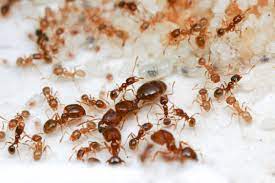Ant farms are fascinating miniature ecosystems that give a regard into the sedulous world of ants. As witching as they are, enthusiasts frequently wonder about the lifetime of ant farms and how to insure their life. In this article, we’ll explore the average duration of ant farms and share tips on making them last indeed longer. How long do ant farms generally last, and what factors impact their duration?
How Long Do Ant Farms Last on Average?
The lifetime of an ant farm can vary grounded on several factors, including the type of ants, the quality of the niche, and the level of care handed. On average, a well- maintained ant farm can last anywhere from a many weeks to several months. Still, it’s essential to understand that ant farms are dynamic surroundings, and factors similar as the ants’ natural lifetime and their capability to reproduce can impact the overall duration.
The Lifespan of Ant Farms
- Ant Species Matters: Different ant species have varying dates, affecting how long an ant farm remains active. Some species live for just a many weeks, while others can thrive for several months or indeed times. Probing the specific species in your ant farm will give precious perceptivity into their lifecycle.
- Natural Lifecycle of Ants: Ants go through distinct life stages, including egg, larva, pupa, and adult. The duration of these stages varies among species. In some cases, ants might only live for a many weeks as grown-ups, limiting the overall lifetime of the ant farm.
- Colony Dynamics: Ant farms frequently correspond of a queen, worker ants, and occasionally soldiers. The queen’s capability to lay eggs and the workers’ effectiveness in rustling and maintaining the nest influence the overall health and life of the colony.
- Environmental Factors: The terrain within the ant farm plays a pivotal part. Factors similar as temperature, moisture, and the vacuity of food and water can impact the ants’ well- being. Maintaining optimal conditions is crucial to icing a longer- lasting ant farm. Exploring the question,” How long do ant farms endure in different conditions?”
Make Your Ant Farm Last Longer
Choose the Right Ant Species:
Before starting an ant farm, exploration and elect ant species with longer dates. This can significantly extend the duration of your ant farm’s exertion.
Provide Adequate Nutrition
Ants bear a balanced diet to thrive. Insure that your ant ranch is grazed with a variety of food sources, including sugars, proteins, and fats. Regularly replenish their food force to keep the colony well- nourished.
Maintain Optimal Conditions:
Cover the temperature and moisture situations within the ant farm. Utmost ant species prefer a stable terrain, so avoid drastic oscillations that could stress the colony.
Regular Cleaning
Keep the ant farm clean by removing debris, uneaten food, and waste. This helps the growth of dangerous bacteria and ensures a healthier living terrain for the ants.
Avoid Disturbances
While observing your ant farm is part of the enjoyment, try to minimize gratuitous disturbances. Inordinate tapping on the vessel or frequent running can stress the ants, potentially affecting their lifetime.
Observe and Learn
Pay attention to the behavior of your ant colony. However, illness, or decline in exertion, If you notice any signs of stress. Understanding the requirements of your ants will contribute to a longer- lasting ant farm.
Consider Expansion
Some ant farms come with the option to expand. However, furnishing fresh space can stimulate the ants’ natural actions and promote a healthier, longer- lived colony, If your ant colony is thriving and you want to protract the experience.
How Environmental Factors Affecting Ant Farm?
Environmental factors significantly impact ant farms. Temperature and moisture situations must be precisely maintained, as drastic oscillations can stress the colony. Acceptable ventilation is pivotal to help recession and insure a healthy terrain. Vacuity of food and water sources directly influences the ants’ well- being. A balanced, varied diet contributes to their overall health. Cleanliness is consummate, as debris and waste can foster dangerous bacteria. By understanding and managing these environmental factors, ant enthusiasts can produce an optimal habitat, promoting the well- being and life of their ant farms.
Conclusion
Enthusiasts frequently consider,” How long do ant farms thrive, and what measures impact their lifetime?” In conclusion, the lifespan of ant farms is told by a combination of natural factors and the care handed by their mortal custodians. By opting the right ant species, maintaining optimal conditions, and offering thoughtful care, enthusiasts can extend the duration of their ant farms. These atomic ecosystems give a unique window into the intricate world of ants, and with proper attention, the experience can be enjoyed for an extended period. Whether you are a neophyte ant keeper or a seasoned enthusiast, applying these tips will probably contribute to the life of your ant farm, allowing you to marvel at the sedulous conditioning of these remarkable creatures for months to come.



